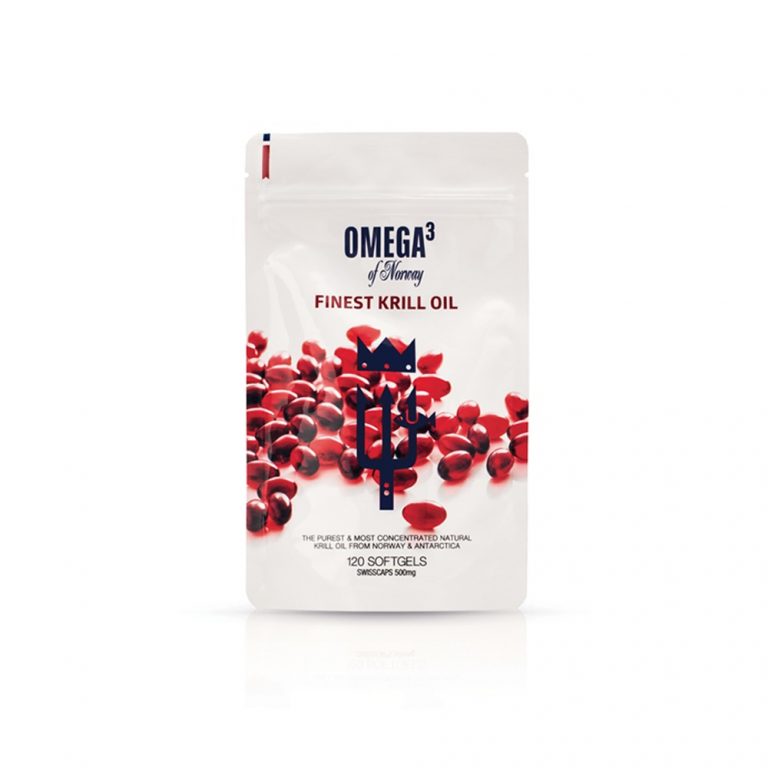Content
- Depression in the world
- The impact of nutrition
- How omega-3 influences our brain
- Is fish oil good for mental health?
- Conclusion
Feeling depressed, lacking motivation or just a bit sad? You’re not alone. With the changing seasons, colder temperatures and longer nights, we all need some extra help to keep our mood up. Be it “hygge” or long winter walks, there are many things we can do to improve our mood. But sometimes, a low mood might not just be due to a sudden drop in temperature and less daylight, but the result of a medical condition.
In this article we will look at the role of food with regard to our mental health and how some supplements like omega – 3 fatty acids can have a positive effect on our mind.
Depression is more common than you might think
About 450 million people in the world are living with mental disorders, according to the World Health Organization (WHO), depression being the most common one. Depression is a mood disorder that is marked by feelings of persistent low mood, sadness, lethargy and lack of interest in activities that affects over 300 million people in the world. Its treatment typically involves antidepressant medication and therapy, but there is a lot of new research happening all the time, to gather more information and find better solutions for people affected by it. There are many causes for depression, if you suffer from seasonal affective disorder (SAD) for example, the onset of winter can cause your energy levels to drop and your mood to darken.
Our Diet Can Impact Our Mental Health
Recently, researchers have started to establish a connection between our diet and mental health which shows, that what we feed our body can directly impact how we are feeling, not just our physical health. While we already know that a healthy and balanced diet are important for our physical well-being, this shows that our diet also impacts our mind. While it is known, that depression is less common in countries where people eat a lot of fish, scientists are now starting to investigate whether fish oil can prevent or treat depression and other mood disorders.
Nutritional supplements as additional treatment
A new meta-analysis shows that some nutritional supplements can function as an effective additional treatment for some mental disorders. The strongest evidence has been found for omega – 3 supplements as an add-on treatment for major depression. It can go as far as to reduce symptoms beyond the effects of antidepressants alone. With findings like this, the role of nutrition in mental health is becoming increasingly acknowledged.
We will now explain what omega – 3 fatty acids are and why they are so important for our body.
How Omega – 3 Influences Our Brain
Eicosapentaenoic acid (EPA) and docosahexaenoic acid (DHA) are the fatty acids responsible for the health benefits of fish oil supplements. These omega – 3 fatty acids and our body cannot produce them itself, so we rely on consuming them through our diet or with the help of supplements like fish oil or krill oil.
omega-3, a strong anti-inflammatory
These fats are good and healthy for us because of their anti-inflammatory properties and importance for our cell membranes. They also plan an important role for our heart health and our neural development for example. While it is possible to synthesize EPA and DHA from alpha-linolenic acid (ALA), another omega – 3 fatty acids which naturally occurs in foods like walnuts, chia seeds, flaxseeds, canola oil and soybeans, this process is very inefficient and taking a supplement can be a more effective solution.
How EPA and DHA impact our brain
Now we know what these omega – 3 fatty acids are, but what do they do to our brain?
EPA and DHA are critical for the development of our brain and its function throughout all our lives and support our body in the maintenance of normal brain function by preserving cell membrane health and facilitating the communication between brain cells. Especially during our first years and during pregnancy they are crucial. Several studies have linked an increased intake of omega – 3 by the mother to higher scores in intelligence and brain function tests in their children. Here you can read more about the importance of fish oil during pregnancy.
In older adults, lower levels of DHA have been associated with smaller brain size, which is a sign of accelerated brain ageing. And while it cannot cure Alzheimer’s, the most common type of dementia, fish oil can improve brain function in people with mild types of brain conditions like mild cognitive impairment (MCI) or age-related cognitive decline. Here you can read more about the impact of omega – 3 on the brain and our memory. While supplementing with omega – 3 does not seem to improve brain function in healthy individuals without memory problems, it can lead to an improvement for those with mild conditions.
Next to their impact on brain development, omega – 3s are considered a promising natural treatment when it comes to certain mood disorders like depression, which we will look into in the next part of this article.
Is Fish Oil Good For Mental Health?
The answer to this is two-fold: promising but not yet proven. Like we mentioned in the beginning of this article, there is a connection being established between nutrition and mental health.
nutrition and mental health
There is research looking at the role of nutrition in mental health and there is some evidence, that people who take omega – 3 are less likely to be depressed, and that people who do suffer from depression or anxiety and started to take omega – 3s have seen an improvement in their symptoms. A recent review of clinical studies on the subject concluded that taking fish oil supplements improved depressive symptoms in people with depression comparable to those of antidepressant medication. The biggest impact however has been on people who also took antidepressants while supplementing with fish oil, and the effect seemed greater when the fish oil contained higher doses of EPA. EPA therefore seems to be the omega – 3 fatty acid that is best at fighting depression, even though researchers are not sure about why that is.
More research is needed
There is no consensus about how omega – 3 fatty acids improve depression, but there are several suggestions from scientists. Some say that because they are water-soluble, the fatty acids can easily enter into the brain and its cell membranes and interact with mood-related molecules inside the brain. Others suggest that the anti-inflammatory nature of EPA and DHA can help relieve depression.
While more research is needed, there is a lot of evidence supporting that people with depression or a mild decline in brain function could benefit from taking omega – 3 supplements on a daily basis. Omega – 3 fatty acids therefore are a promising natural treatment for mood disorders, but more research is needed on how effective they are and about their long-term safety.
Conclusion
While there is more research needed, there is growing evidence that omega – 3 fatty acids can help alleviate symptoms of depression and even improve the effect of antidepressant medication. But omega – 3 fatty acids also play an important role in the maintenance of our brain function, our heart health and many other processes in our body, so a daily supplement should be on everyone’s list. These essential nutrients can do a lot of good in our body and if you want to learn more, head over to our blog or browse our shop for our selection of high-quality fish oil and krill oil products.





























